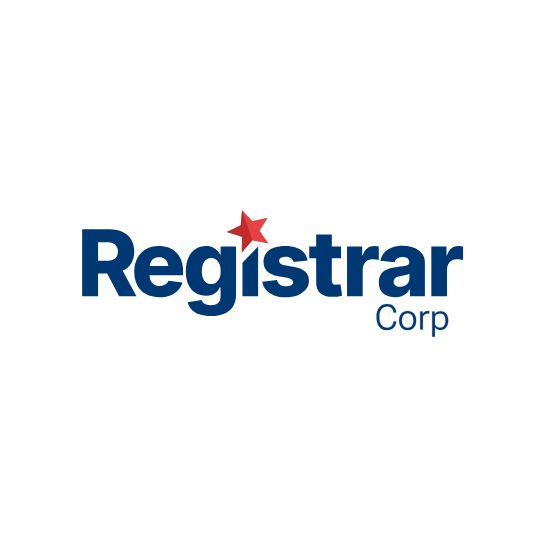In today’s globalized economy, businesses in India increasingly look to tap into the lucrative U.S. market for their drugs, medical devices, food and beverage products, and cosmetics. While the opportunities are immense, the path to U.S. market entry is fraught with challenges, particularly when it comes to ingredient and formulation compliance. U.S. regulatory bodies such as the Food and Drug Administration (FDA) have stringent standards that manufacturers and exporters must meet. Ensuring compliance with these standards can be daunting, but it is essential for market success.
In this blog, we explore the complexities of ingredient and formulation compliance across different industries and highlight how partnering with a regulatory expert can streamline the journey from India to the U.S.
Stringent U.S. Regulatory Standards
One of the most significant hurdles for Indian manufacturers and exporters entering the U.S. market is navigating the complex web of regulations around ingredients and formulations. Each industry—whether it’s pharmaceuticals, medical devices, food and beverages, or cosmetics—has its own set of requirements. These include permissible ingredients, concentration limits, labeling standards, and testing protocols.
The challenge is twofold:
- Compliance with the FDA’s requirements: Understanding and adhering to the regulatory framework to ensure the product is legally marketable in the U.S.
- Cross-border complexities: Translating Indian formulations and manufacturing processes into U.S.-compliant versions while maintaining product integrity and meeting consumer expectations.
Failing to meet these requirements can lead to delays, rejection of products at ports, penalties, or even bans from the U.S. market.
Industry-Specific Ingredient and Formulation Compliance Challenges
1. Drugs and Pharmaceuticals
Pharmaceutical products entering the U.S. must comply with stringent FDA regulations. This includes:
- Active Pharmaceutical Ingredients (APIs): Each ingredient must meet specific purity and quality standards. The FDA prohibits certain ingredients, such as some colorants or preservatives, that may be acceptable in India.
- Excipients: Even non-active ingredients are scrutinized to ensure safety.
- Manufacturing Practices: Good Manufacturing Practices (GMP) are mandatory, requiring detailed documentation of all formulation processes.
- Drug Master Files (DMFs): For many Indian pharmaceutical manufacturers, submitting DMFs to the FDA is critical to demonstrate the safety and efficacy of their formulations.
Key Differences in API Compliance
| Requirement | India | U.S. (FDA) |
| Ingredient Purity | Indian Pharmacopoeia (IP) | United States Pharmacopeia (USP) |
| Stability Studies | Short-term testing allowed | Long-term testing mandatory |
| GMP Certification | State-specific requirements | FDA audit mandatory |
2. Medical Devices
For medical devices, ingredient compliance goes beyond biocompatibility and includes:
- Material Safety: Materials used in devices like catheters, implants, or diagnostic tools must be free from harmful chemicals.
- Toxicology Reports: Documentation proving that materials do not leach harmful substances is crucial.
- Labeling Standards: Ingredients must be clearly listed to meet transparency requirements.
- Regulatory Pathways: Indian manufacturers must determine the appropriate FDA submission route—510(k), PMA, or De Novo.
3. Food and Beverages
Food and beverage manufacturers face unique challenges, including:
- Food Additives: The FDA maintains an exhaustive list of Generally Recognized as Safe (GRAS) ingredients. Indian spices or preservatives may require additional documentation to prove compliance.
- Allergens: Clear labeling of potential allergens is non-negotiable.
- Nutrition Facts Labeling: Indian exporters must adapt their labeling to U.S. standards, which often differ in format and required information.
Navigating Compliance with Expertise
Understanding Regulatory Nuances
Each industry has its unique requirements, and understanding these differences is vital. For example, while a particular dye may be permissible in Indian cosmetics, it might not be allowed under FDA regulations. Similarly, food products rich in certain spices might need additional testing to validate claims about health benefits or ensure safety for consumers.
Documentation and Testing
Documentation is a cornerstone of compliance. It includes ingredient sourcing certificates, toxicology reports, stability data, and manufacturing protocols. In addition, all formulations must undergo rigorous testing to meet U.S. standards.
Partnering for Success
- Indian manufacturers can benefit greatly from partnering with regulatory experts who understand the U.S. market. A regulatory partner can:
- Identify potential compliance issues in the early stages of product development.
- Assist with preparing and submitting the required documentation to the FDA.
- Conduct gap analyses to align Indian formulations with U.S. standards.
Advantages of a Regulatory Partner
| Benefit | Details |
| Expertise in FDA Standards | In-depth knowledge of permissible ingredients and documentation requirements |
| Faster Market Entry | Streamlined processes minimize delays and reduce time to market |
| Cost Savings | Avoid costly mistakes or rejections by getting it right the first time |
| Risk Mitigation | Comprehensive compliance ensures smooth product acceptance by U.S. regulators |
| End-to-End Support | Assistance from ingredient sourcing to final FDA approval |
Accelerate U.S. Market Entry with Expert Compliance Support
Ingredient and formulation compliance is a critical step in entering the U.S. market. For Indian manufacturers in the pharmaceutical, medical device, food and beverage, and cosmetic industries, the journey can be overwhelming. However, by understanding regulatory requirements, aligning formulations with U.S. standards, and partnering with experienced regulatory consultants, this process can be streamlined.
A regulatory partner not only ensures that your product complies with FDA standards but also helps you navigate the complexities of cross-border compliance seamlessly. By doing so, they enable you to focus on what you do best—creating innovative and quality products—while ensuring a successful entry into the U.S. market.
By leveraging the expertise of regulatory service providers like Registrar Corp, Indian exporters can unlock new opportunities and overcome compliance barriers.
Connect with us and see how we can help you thrive in the competitive U.S. market.









